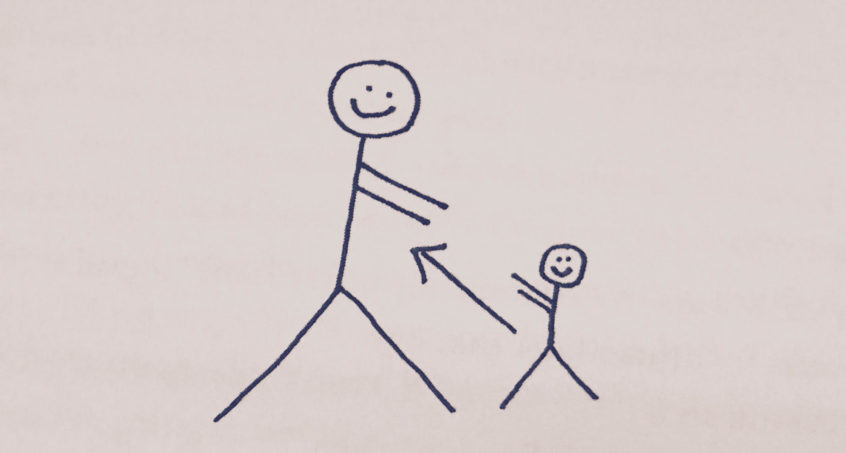One simple thing that changed my life was learning the word enmeshment.
Everyone knows what abandonment is: This is when a caregiver abandons, is detached from, or doesn’t provide for the child. This can range from a parent who isn’t physically present, to a parent who is physically present but emotionally distant, to a parent who doesn’t ensure adequate care or safety, to a parent lost in a work, sex, gambling, alcohol, or other addiction.
Enmeshment is the unacknowledged opposite of abandonment. Instead of neglecting a child’s needs, the enmeshing parent tries to get his or her own needs met through the child. This can take various forms:
- A parent who lives through a child’s accomplishments.
- A parent who makes the child a surrogate spouse, therapist, or caretaker; who is depressed and emotionally uses the child.
- A parent who is overbearing or overcontrolling.
- A parent who is excessively emotional or anxious about a child.
- If you regularly feel sorry for a parent, this is a sign that enmeshment could be occurring.
In the process, enmeshed children lose their sense of self. As adults, they usually avoid letting anyone get too close and suck the life out of them again. Where abandoned people are often unable to contain their feelings, enmeshed people tend to be cut off from them, put up walls to avoid intimacy, and be perfectionistic and hypercontrolling of themselves and others. In relationships, they often feel superior to their partners. Where the abandoned tend to become needy intimates as adults, the enmeshed act needless. This adaptation is known as avoidant attachment.
In general, someone abandoned by the parent of the sex they’re attracted to will choose as a partner someone who’s been enmeshed by the parent of the sex they’re attracted to. And this sets up a classic dysfunctional relationship.
For those who had an enmeshing parent, here are ten steps to get beyond it. This is not a random listicle. This is written from experience, and what worked for me:
Ten Steps to Get Beyond Enmeshment
1. Communicate your boundaries to your partner, otherwise they will be trespassed and you will build resentment.
2. If you can be aware of what legitimate needs you’re not attending to and then take actions to meet them, that is the road to happiness.
3. Don’t worry about your partner and whatever you think their problems are. You can’t date someone hoping they’ll change. You have to be willing to date them and commit to them as they are, with no expectations. And if they happen to choose to change at some point along the way, then that’s just a bonus. As you get right with yourself, you’ll see who they really are anyway.
4. Stop feeling responsible for the feelings of others. That’s what holds you back in relationships and leads to you resenting others.
5. Be aware of the pain wall to push through it, whether it’s a fear of being trapped or a fear of not being good enough. Tell yourself, “It’s a good indicator that I feel trapped, when in actual fact I’m not really trapped. Let me explore this feeling and figure out where it’s coming from. This is a big lesson for me; it’s not about my partner.”
6. Every morning, wake up and tell yourself that it’s your choice to be with your partner, and that commitment is freedom.
7. When someone expresses a need, you tell yourself, “They’re not my mother/father. I’m not responsible for their happiness.”
8. Re-parent yourself by asking throughout the day, “What do I need to do right now in this moment to take care of myself?” Keep a photo of yourself as a child next to the bed as an additional reminder to take care of your inner child.
9. When you’re triggered, write down your negative thoughts and behaviors, then pinpoint what wound they come from in your past and tell yourself the truth of the situation. Let go of the lie.
10. Maintain a healthy life balance in the following areas: physical, sexual, emotional, social, intellectual, and spiritual.
Be sure to read my quick-start guide to healing trauma and psychological wounds.
For further reading about my journey to discovering my own enmeshment, pick up your copy of The Truth: An Uncomfortable Book About Relationships.

